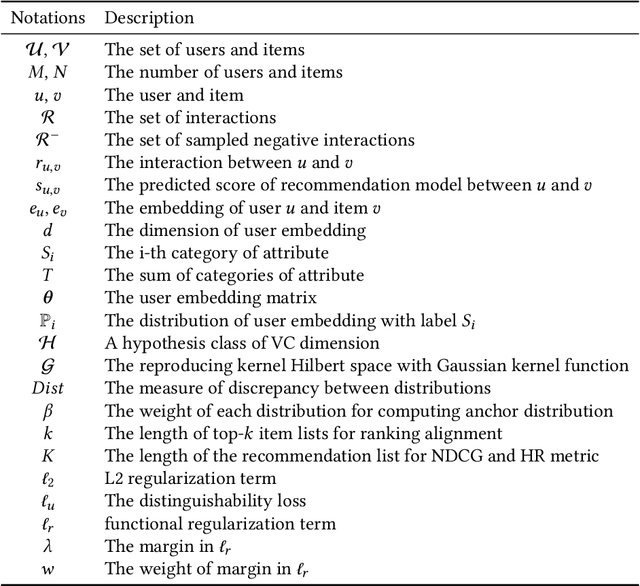Xiaoli Zheng
Post-Training Attribute Unlearning in Recommender Systems
Mar 11, 2024



Abstract:With the growing privacy concerns in recommender systems, recommendation unlearning is getting increasing attention. Existing studies predominantly use training data, i.e., model inputs, as unlearning target. However, attackers can extract private information from the model even if it has not been explicitly encountered during training. We name this unseen information as \textit{attribute} and treat it as unlearning target. To protect the sensitive attribute of users, Attribute Unlearning (AU) aims to make target attributes indistinguishable. In this paper, we focus on a strict but practical setting of AU, namely Post-Training Attribute Unlearning (PoT-AU), where unlearning can only be performed after the training of the recommendation model is completed. To address the PoT-AU problem in recommender systems, we propose a two-component loss function. The first component is distinguishability loss, where we design a distribution-based measurement to make attribute labels indistinguishable from attackers. We further extend this measurement to handle multi-class attribute cases with efficient computational overhead. The second component is regularization loss, where we explore a function-space measurement that effectively maintains recommendation performance compared to parameter-space regularization. We use stochastic gradient descent algorithm to optimize our proposed loss. Extensive experiments on four real-world datasets demonstrate the effectiveness of our proposed methods.
 Add to Chrome
Add to Chrome Add to Firefox
Add to Firefox Add to Edge
Add to Edge